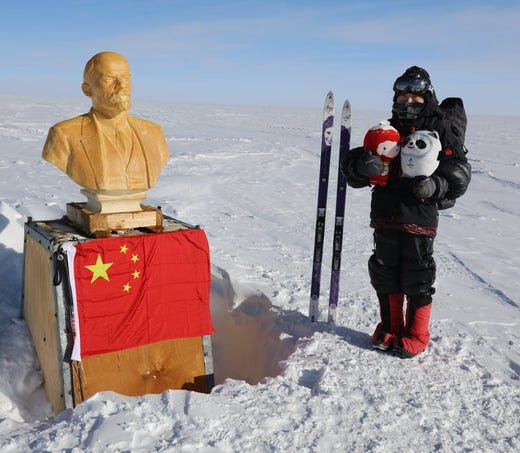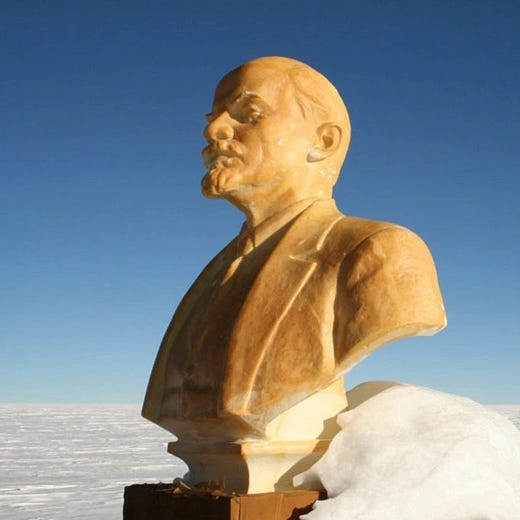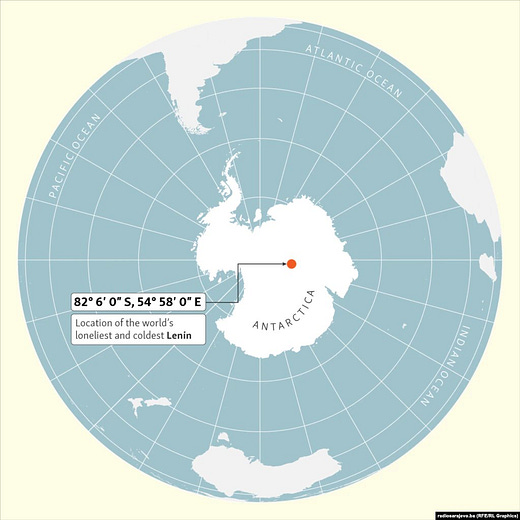Let's Do the Olympics ... But as a Sort of Ambivalent Non-event
That's unfair because ChinaDiction is sure some Golds are being duly noted on the inside pages of syndicated newspapers, but it's not going to be an Olympics to remember, unless you're Eileen Gu.
So, this is really Bill Bishop’s turf – and he’s the doyen of Chinese newsletters (you should head over and subscribe if you haven’t already because he’s genuinely engagé, unlike ChinaDiction, where we irreverently just make it all up). Bill’s nodded at the mysterious case of China’s missing Standing Committee members.
The speculation is that they’re ‘quarantining’ from possibly infected global leaders, or that Putin let it drop that he’s going to make some kind of move on Ukraine before the Olympics are over and that’s stuff that needs to be discussed by Standing Committee people. Of course, they might all just be taking the break they didn’t get for Chinese New Year – or Lunar New Year as we now refer to it neutrally in politically correct, LGBTQ-tolerant – and boisterously democratic – Taiwan.
But, tea-leaf conjecture aside, it’s basically just a downright weird Olympics. As The Economists notes:
The “closed-loop”, a secure quarantine zone created for Olympic athletes, coaches and dignitaries newly arrived from an outside world that, in contrast with China, has resigned itself to living with covid-19. Most of the stadium’s seats were kept empty, as a pandemic precaution. Olympic tickets are not on sale to the public, and China’s borders are closed to foreign fans.
[But it’s all still supposed to be fun and games, as The Economist further notes] Any hint of bad news about the games is blamed by Chinese officials on “paranoid Western media”. A meme flying around Chinese social media shows Bing Dwen Dwen [China’s lovable Olympics mascot – see Other News below] in a bobsleigh, warning those who block his way: “I’ll run you over.” Though not an official slogan, it captures China’s mood well.
Could a Putin damper on the Olympics hold a silver lining for Beijing?
Let’s get this straight, if Putin does anything in Ukraine – it doesn’t have to be a full-scale invasion, although terrifyingly it could be – we have a humanitarian disaster on our hands and potentially the biggest conflict in Europe since Hitler stopped buying canvases and brushes.
But Bloomberg is taking it a step farther and suggesting that the Biden administration thinks Beijing sees the Western reaction as a proxy for Chinese action on Taiwan.
American officials said they believe Xi’s government is studying the cohesion of the NATO alliance as it seeks to push back on Russian President Vladimir Putin’s massing of forces near Ukraine’s border. Although Putin has said he has no intention of invading Ukraine, the standoff has emerged as the biggest crisis to face the North Atlantic Treaty Organization since the Balkans conflict in the 1990s.
Of note, Taiwan president, Tsai Ing-wen, has ordered the government to monitor the situation and its potential impact on Taiwan’s security.
So, is Beijing watching this unfold and thinking about it? Sure. Will Ukraine’s fate determine Taiwan’s? Put on your thinking cap and you’d have to say, Improbable. There are no parallels, really, other than the ability of China foes to agree on whether appeasement has a bottom line.
Russia’s GDP is approximately equivalent to that of China’s southern Guangdong Province – a rich province, but just one of 31 Chinese provinces. How NATO and the US respond to whatever Putin has planned will be of great interest to China, but it will not be a decider as to whether unification is possible only by force – and whether that is actionable.
Other news
ChinaDiction knows that this story’s been done to death, but all the same, it has to be said, Beware pirated pandas. Reports the New York Times:
Most popular of all [Olympics paraphernalia] is an eight-inch-tall plush stuffed animal version of the Beijing Olympics mascot — Bing Dwen Dwen, a rotund panda in a suit of ice. The main version of the stuffed animal weighs seven ounces and sells for US$30 at 162 official Olympics memorabilia stores nationwide. Long lines form every morning to buy limited stocks.
Online scalping of the toys has also been rife, despite efforts by the authorities to stop it, with prices said to run into the hundreds of dollars. The Beijing police said [last week] that they were imposing unspecified administrative penalties on three people who they said had ‘violated normal market operations’ by trading Bing Dwen Dwen stuffed animals.
Fortunately, there is a fail-safe test to ensure your Bing Dwen Dwen is the real deal. Can it squeeze through the average modern doorway?
Unlike a lot of the other Other news, we report at ChinaDiction, this is is important shit. It’s thought that Chinese adventurers may have reached what may be the world’s most inaccessible Lenin sculpture:
In Asia’s World City, Hong Kong, you can queue cheek-by-jowl by the thousands to be tested – and people are doing so, because that’s what they’ve been told to do:
But if you stop for a chat with three other people on the way home afterwards (ChinaDiction hears it may be one other person now – see tweet below), you’re going to get fined thousands of HK dollars.
Just take a look at this poor homeless man who took off his mask to eat some food and had to beg on his knees not to be fined:
This isn’t news that needs to be here: it’s no secret, but more people need to know that it’s happened – and what it really means. Peng Shuai has retired … She’s out of tennis … and as far as the CCP is concerned she will soon be out of the international public eye and will be just another Chinese citizen with no rights.
Of note: Lauded Australian scholar, Jeremy Barmé, has translated Fang Zhou’s Requiem for an Autocrat: Xi Jinping’s End of Days. Barmé has done a lot of this ivory tower translation work over the years (he cannot visit China, obviously), introducing defiant anti-Xi intellectuals and their thoughts to a small minority of dedicated China watchers. To be sure, outspoken intellectuals like Zhou are rare but they speak to an educated elite in China who are concerned that China has careened off the tracks under Xi and, by the time the country realizes it has overdosed on its own hype, it will be too late.
Book Review: The Subplot: What China Is Reading and Why It Matters
Very newly released (February 8), Subplot is one of those rare China books that make you think, if only more people wrote China books – which obviously is a terrible idea. But where else do you get to read stuff like this?
In the early days of the COVID-19 outbreak in Wuhan, Yan Lianke [highly respected Chinese novelist who is banned in China but still allowed to teach] urged some of his creative writing students to be ‘the people who have graves in their hearts, with memories etched in them; the people who remember and can someday pass on these memories to our future generations.’ Literature is a place in which topics and ideas can be suppressed but not buried. It can explain why things feel too good to be true, why contemporary society feels disconcerting and uncanny. Yan believes that the same line of magical thinking that produced the Great Leap Forward’s smelting campaigns in the 1950s also created the artificially low number of official COVID casualties in 2020. ‘While memories may not give us the power to change reality,’ he told his students in the aftermath of the outbreak, ‘it can at least raise a question in our hearts when a lie comes our way.’
What China is Reading is a reminder that China is 1.4 billion stories – success, failure, tragedy, despair, hope, dreams and the will to find meaning when meaning itself is dangerous. The migrant poet Xu Lizhi, threw himself off the 17th floor at the age of 24 after working at a Foxconn factory in Shenzhen, making Apple products. He wrote:
I swallowed an iron moon they called it a screw I swallowed industrial wastewater and unemployment forms bent over machines our youth died young I swallowed labor, I swallowed poverty swallowed pedestrian bridges, swallowed this rusted-out life I can't swallow any more Everything I've swallowed roils up in my throat I spread across my country a poem of shame
Walsh writes, “We turn specifically to fiction for explanation, solace, and guidance when things feel out of step, or when our realities no longer measure up to the stories we are being told.” She remarks on how formerly banned To Live (in which almost everyone dies), suddenly hit the charts with a bullet three decades later due to a celebrity endorsement. Yu Hua, the author, thanked the celebrity and said to the entertainer’s young fans: “You are a unique generation … You are in a period where the future has come and the past has not yet passed.”
It’s as profound a statement on the current China condition as any other ChinaDiction has heard.
Coda












